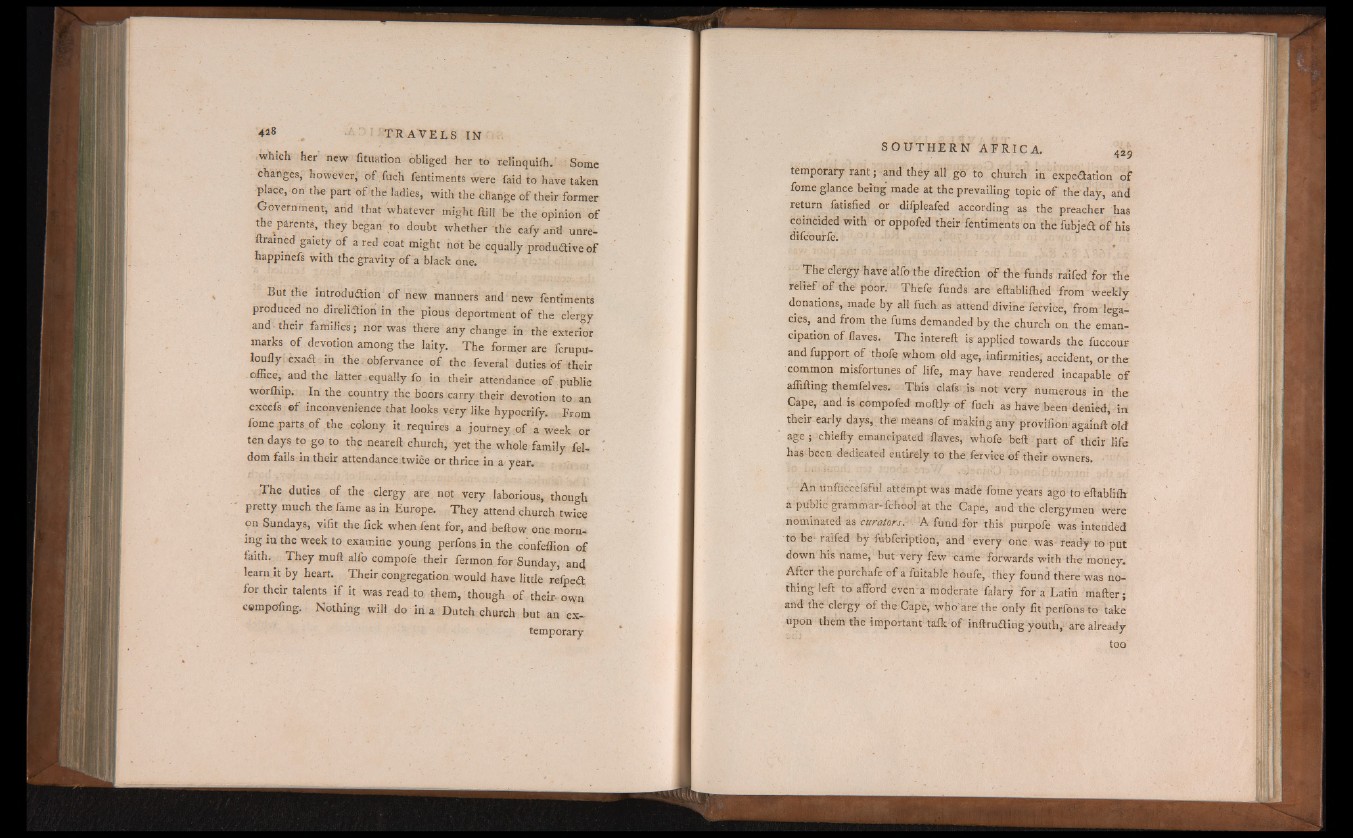
which her new fituation obliged her to relinquiih. Some
changes, however, of.fuch fentiments were faid to have taken
place, on the part of the ladies, with the change of their former
Government, and that whatever might ftill be the opinion of
theorems, they began to doubt whether the eafy arid unre-
ftramed gaiety of a red coat might not be equally produdiveof
happinefs with the gravity of a black one.
But the introduction of new manners and new fentiments
produced no direlidion in the pious deportment of the clergy
and-their families; nor was there any change in the exterior
marks of devotion among the laity. The former are fcrupu-
loufly. exa£t in the obfervance of the feveral duties of their
office, and the latter equally fo in their attendance of public
worlhip. In the country the boors carry their devotion to an
excefs ©f inconvenience that looks very like hypocrify. From
fome parts of the colony it requires a journey of a week or
ten days to go to the neareil church, yet the whole family fel-
dom fails-in their attendance twice or thrice in a year.
The duties of the clergy are not very laborious, though
pretty much the fame as in Europe. They attend church twice
on Sundays, vifit the fick when fent for, and bellow one morning
in the week to examine young perfons in the confeffion of
faith^ They mull alfo compofe their fermon for Sunday, and
learn it by heart. Their congregation would have little refped,
for their talents if it was read to them, though of their- own
c»mpoling. Nothing will do in a Dutch church but an extemporary
temporary rant; and they all go to church in expectation of
fome glance belftg made at the prevailing topic o f the day, and
return fatisfied or difpleafed according as the preacher has
coincided with or oppofed their fentiments on the fubjed of his
difcourfe. •- !
The clergy have alfo the diredion of the funds .raifed for the
relief of the poor. Thefe funds are eftablilhed from weekly
donations, made by all fuch.as attend divine fervice, from legacies,
and from the fums demanded by the church on the emancipation
of Haves. The intereft is applied towards the fuccour
and fupport of thofe whom old age, infirmities, accident, or the
common misfortunes of life, may have rendered incapable of
affifting themfelves. This clafs is not very numerous in the
Cape, and is compofed moilly of fuch as hive been denied, in
their early days, the means of making any provifion agafnft old
age ; chiefly emancipated Haves, whofe bell part of their life
has-been dedicated entirely to the fervice of their owners.
An unfuccefsful attempt was made fome years ago to eftablilh
a public grammar-fchool at the Cape, and the clergymen were
nominated as curators. A fund for this purpofe was intended
to be raifed by fubfcription, and every one was ready to put
down his name, but very few -came forwards with the money.
After the purchafe of a fuitable houfe, they found there was nothing
left to afford even:a moderate falary for a Latin mailer;
and the clergy of the Cape, who'are the only fit perfons to take
upon them the important talk of inflrmting youth, are already
too